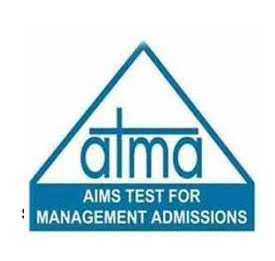Anyone with an interest in media, journalism, narrative, or global information movement should give BA Mass Communication, a three-year program some thought. This course could be ideal for you if you have ever questioned how news is created, how advertising functions, or how social media shapes attitudes.
This curriculum presents many interesting opportunities if your dream job is in journalism, digital media, public relations, advertising, filmmaking, radio, television, or even content creation for YouTube and social media.
The course addresses everything from news reporting to media ethics, public relations to advertising, photography to digital editing. You will look at conventional media, including newspapers, TV, and radio, as well as contemporary venues such as podcasts, blogs, YouTube, and social media marketing. Through media lab activities, internships, and classroom theory combined with practical experience, the program combines
You intend to apply for the BA in Mass Communication for 2025. Here is what you need to know: you have to have passed your 10+2 (or equivalent) from an approved board. Most universities require a minimum Class 12 grade of 45–50%. Usually, there is no stream limitation; students from arts, science, or commerce can all apply. Certain elite colleges might additionally run personal interviews, group talks, or entrance exams.
- BA in Mass Communication Key Highlights
- What is a BA in Mass Communication?
- Why Study BA in Mass Communication?
- Who should study for BA in Mass Communication?
- BA in Mass Communication Eligibility Criteria
- BA in Mass Communication Entrance Exams 2025
- BA in Mass Communication Colleges in India
- BA in Mass Communication Admission Process 2025
- BA in Mass Communication Syllabus
- BA in Mass Communication Job Opportunities in India
- BA in Mass Communication FAQs
BA in Mass Communication Key Highlights
Below are the key highlights of the BA in Mass Communication course in India:
What is a BA in Mass Communication?
Anyone enthralled by media, narrative, news, or the way knowledge impacts our environment ought to think about a three-year BA in Mass Communication degree. If you have ever wondered how newspapers are written, how social media shapes individuals, or how TV shows, podcasts, and commercials are produced, this course could be just the right fit for you.
Over the course, you will investigate how communication functions on several media—print, television, radio, digital, and social media.
You will study journalism, advertising, public relations, media ethics, photography, digital content development, and film production, among other areas. Some colleges also provide hands-on instruction in editing software, graphic design, social media management, and studio production, so that you can guide your communication in the fast-paced media environment of today.
Why Study BA in Mass Communication?
A BA in Mass Communication could be just right for you if you find the media fascinating—how news is presented, how advertising changes people, or how internet platforms shift opinions. The following justifies why this curriculum could be quite appropriate:
- Employment Prospects: Mass communication degrees open a lot of career paths. Among the several venues you could find work are news media, advertising agencies, PR firms, movie and television production businesses, digital marketing organisations, social media platforms, or corporate communication departments.
- Value Media's Authority: Learning mass communication allows one to grasp how the media shapes public opinion and influences people directly. You will take into account how stories are produced and presented, how messages could inspire or educate, and how print, audio, video, and digital media communication functions.
- Useful Knowledge: This training loads not just thoughts but also useful knowledge. Here, you are not reading hypotheses. Most colleges provide studio work, newsroom training, live reporting, group seminars, and content development projects.
Who should study for BA in Mass Communication?
If media, storytelling, public opinion, or creating digital content interests you, a BA in Mass Communication might be just what you’re looking for. This program works well for:
- Students curious about how communication affects society. If you often think about how news gets shared, how ads influence decisions, or how social media shapes culture, this course lets you dig into these topics across print, digital, broadcast, and visual media.
- If you like communication research or teaching, a BA in Mass Communication is a solid option. You'll learn about media theories, ethics, and how audiences work, which can really help if you want to pursue a master's, teach media, or dive into research.
- Whether you’re heading towards civil services, corporate communication, or public administration, this course sharpens your presentation skills, critical thinking, and media literacy—all important in today’s communication-focused world.
- This program is great for those who love being creative, spotting trends, and engaging with the public.
BA in Mass Communication Eligibility Criteria
To enroll in a BA in Mass Communication, candidates have to meet some educational and admission requirements. Without fulfilling these criteria, it is not possible to enter the course. Mentioned below are the BA in Mass Communication eligibility criteria:
- Completed 10+2 in any stream from a recognized board.
- A minimum of 45-50% marks in the 10+2 exam
BA in Mass Communication Entrance Exams 2025
For pursuing a BA in Mass Communication, various national/state/university-level entrance examinations are required to be taken. Colleges and Universities in India offer admission depending on the marks or rank obtained in these examinations.
BA in Mass Communication Colleges in India
Various institutions in India are offering the BA in Mass Communication course; each institute has got some entrance exam criteria for admitting students. Some of the top BA in Mass Communication programs in India have been mentioned below, along with their total course fee, NIRF Ranking, and entrance exams required for admission:
BA in Mass Communication Admission Process 2025
If you want to get into the BA in Mass Communication for 2025 at Manipal University, here's what you need to do:
Step 1: See the official website of college or university for which you are targeting. Usually, applications open between April and July.
Step 2: Fill the application form with your grade from 10th and 12th, the subjects you have and you have any art achievement. Some schools also want a portfolio of your artwork. Be sure to upload any necessary documents as scanned copies.
Step 3: On the basis of school, you may need to submit your application online or go to college individually.
Step 4: Some top art schools may ask you to take an entrance exam.
Step 5: After testing or depending on your grade, college will post a list of selected candidates.If you see your name there, they can invite you for counseling or ask to check your documents. Therefore, keep your original documents.
Step 6: If you are accepted, you will get an admit card or email from college. It will have tuition fees, initial date for classes, hostel information and orientation program.
Step 7: To confirm your location, pay the entry fee or seat confirmation amount before the time limit mentioned in the letter. In this way, you will secure your place in the program.
Required Documents:
- 10th and 12th mark sheets
- ID proofs
- Transfer certificate
- Character certificate
- Medical certificate
- Category Certificate (if applicable)
BA in Mass Communication Syllabus
The syllabus for the BA in Mass Communication in India is more or less the same in the colleges offering the course. The syllabus may slightly differ depending on the curriculum followed by the institute. For reference, the syllabus for BA in Mass Communication at Jain University is given below:
BA in Mass Communication Job Opportunities in India
BA in Mass Communication graduates can have job roles in multiple art fields, including Social Media Content Writer, Sub Editor, Deputy General Manager - PR, Correspondent / Reporter, Assistant Manager - Communications and others. Some of the common job roles for BA in Mass Communication graduates in India are given below:











